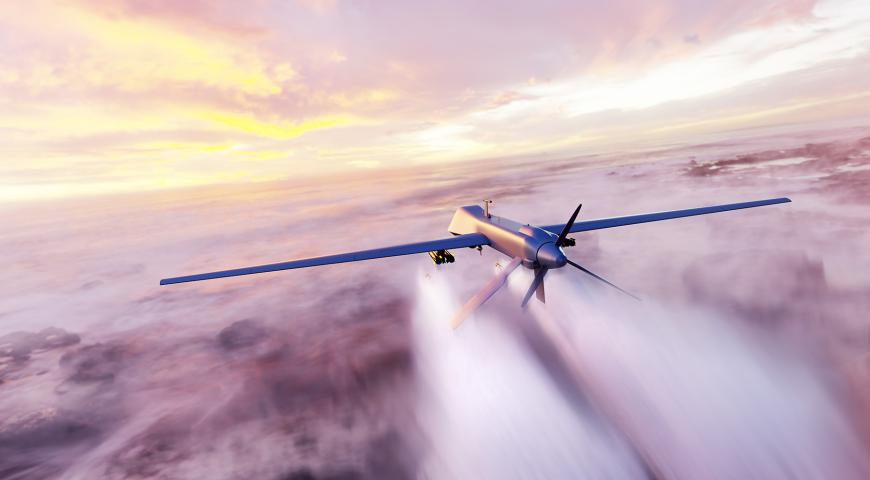We are ‘Better Together’: A contemporary case study #1
On the 23rd of May 2017, between 1,000 and 2,000 terrorist fighters seized Marawi City in the Southern Philippines; a city of almost 200,000 people.
153 days of war ensued.
As a point of comparison, for those familiar with Australian geography and demography, Hobart is a city of 209, 000, Geelong 187, 000, Darwin 123, 000, Cairns 147, 000, Townsville is 180,000 and Wollongong 289,000.
These terrorist fighters were well-led, disciplined, trained and resourced. More alarmingly, they were zealously committed to their cause, agile and resilient. Their audacity was breathtaking.
Arguably, for Australia, a significant terrorist threat was more proximate than ever before.
And so, the Australian Government responded quickly, purposefully, yet discreetly, as a true friend would, collaborating with one of our closest regional neighbours, the Philippines, working together, developing options to defeat the immediate threat in Marawi and to ensure both the Australian Defence Force (ADF), and the Armed Forces of the Philippines (AFoP), were best prepared to counter future terrorist mutations.
Over a six-month period, from May to October last year, the AFoP besieged Marawi City.
In the end, they prevailed over what is arguably the most formidable terrorist threat the Philippines and our region have witnessed in living memory.
Their triumph was both magnificent and comprehensive. The soldiers, marines, sailors and airmen/women of the AFoP are justifiably proud of their victory in Marawi;[i]as is their nation; as should all nations who hope for security, stability, and prosperity. [ii]
***
Since mid October 2017, in both the Philippines and in Australia, the ADF and AFoP have worked ‘better together.’ In partnership, they have trained, mentored, advised and supported well over 5,000 personnel from both nations in essential land, special forces, maritime, air and joint counter-terrorist and violent extremist competencies.
This cooperative endeavour is enduring.
On the land, both Defence Forces have enhanced the ability of the Australian Army, Philippine Army, Marine Corps and Special Forces to operate, fight and win in the ‘urban jungle.’
Accordingly, working together, the ADF and the AFoP will substantially enhance the urban fighting capabilities of both nation’s infantry, special forces, combat engineers, signallers, snipers, artillery/close air support coordinators, and combat trauma medical personnel.
Many of the infantry and special forces mentored to date were drawn from front-line units during the Marawi siege; enabling a considerable transfer in knowledge to Australian Army and Special Operations Command personnel on the reality of intense urban close combat against a well led, disciplined, trained and equipped terrorist threat.
Many of the Filipinos mentored to date are already applying their skills in defeating current terrorist mutations in northern, central and southern Philippines. Numerous engineers have returned to Marawi, up skilled to clear the remnants of war, including improvised explosive devices.
Via a train-the-trainer and advisor program, the mutual effort is enabling the Philippine Army and Marine Corps institutionalise urban operations tactics into how they train their force elements. Concurrently, the Australian Army is seeking to inculcate urban combat lessons learned by the AFoP in Marawi, and indeed other lessons from decades of experience countering communist insurgents in their jungles and mountain ranges.
On the sea, the ADF is supporting the Philippine Navy’s enduring efforts to deny terrorist freedom of action in the Sulu Archipelago. This island chain, linking Mindanao to Malaysia and Indonesia, is a traditional safe haven, resource base and movement corridor for the Abu Sayyaf Group and other miscreants.
In addition to bilateral patrols, joint development of Royal Australian Navy and Philippine Navy mariner and mission-ready skills is well underway in the Philippines and in Australia, along with investment in the training development architecture supporting the generation of such skills. Such shared interaction has been enthusiastically received by all, with demand for more in the future.
Following the RAAF’s significant, and high profile, P3 Orion contribution to the siege of Marawi, efforts in the air domain shifted to sharing lessons in the building blocks of airspace control and targeting. Workshops commenced in late 2017, with mentoring packages repeated throughout 2018. Again, this contribution has been earnestly received, with reciprocal demand for increased cooperation.
The ADF’s cooperation with the AFoP’s information operations capability is modest, yet meaningful. There is considerable demand for mutually beneficial training and advisor support, spanning the field of information operations capabilities – from psychological operations to public affairs. Possessing a robust information operations capability is vital in a country where the military is entwined with the population; and is often the most tangible representation of the Philippine Government, its social contract and the rule of law. For the ADF, there is much to learn from the Filipino approach.
There is emphatic evidence this current collaboration between the ADF and the AFoP is highly effective; that both parties are working ‘better together.’ The AFoP are applying newfound skills in their internal security efforts. Similarly, in Australia, the ADF is incorporating AFoP lesson learned into how it generates warfighting and indigenous capacity building capabilities. If the demand for each other’s know-how and enduring cooperation is a measure of success, the partnership is thriving. Finally, the success of this cooperation has prospered relationships, at all levels, across both whole-of-governments.
[i]https://www.manilatimes.net/marawi-heroes-man-year/379540/
[ii]‘A strong, stable region keeps us more secure and enables our economies to grow and for our peoples to prosper.’ Prime Minister Scott Morrison’s address,‘ Australia and the Pacific: A New Chapter,’ at Lavarack Barracks, Townsville, 8 November 2008.
Social Mastery
Please let us know if you have discovered an issue with the content on this page.
Comments
Start the conversation by sharing your thoughts! Please login to comment. If you don't yet have an account registration is quick and easy.




